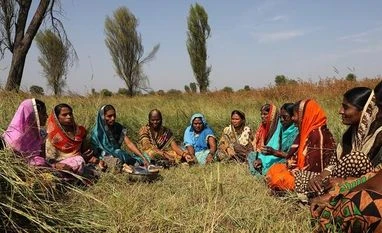Every two minutes, a woman dies during pregnancy or childbirth, according a report titled "Trends in maternal mortality 2000 to 2020: estimates by WHO, UNICEF, UNFPA, World Bank Group and UNDESA/Population Division" released on Thursday.
This report released by United Nations agencies highlights that the world must significantly accelerate progress to meet global targets for reducing maternal deaths, or else risk the lives of over one million more women by 2030.
According to report, Nigeria had the highest estimated number of maternal deaths, accounting for over one quarter (28.5 per cent) of all estimated global maternal deaths in 2020, with approximately 82,000 maternal deaths.
Just second to Nigeria, India accounted for 8.3 per cent of global maternity deaths according to the report.
"Three other countries also had more than 10,000 maternal deaths in 2020: India (24,000), the Democratic Republic of
the Congo (22,000) and Ethiopia (10,000) – 8.3 per cent, 7.5 per cent and 3.6 per cent of global maternal deaths, respectively."
In the previous estimates, Nigeria and India had the highest estimated numbers of maternal deaths, accounting for approximately one third (35 per cent) of estimated global maternal deaths in 2017, with approximately 67,000 and 35,000 maternal deaths (23 per cent and 12 per cent of global maternal deaths), respectively.
“While pregnancy should be a time of immense hope and a positive experience for all women, it is tragically still a shockingly dangerous experience for millions around the world who lack access to high quality, respectful health care,” said Dr Tedros Adhanom Ghebreyesus, Director-General of the World Health Organization (WHO).
“These new statistics reveal the urgent need to ensure every woman and girl has access to critical health services before, during and after childbirth, and that they can fully exercise their reproductive rights.” he added,
The report tracks maternal deaths nationally, regionally and globally from 2000 to 2020 and shows that there were an estimated 287,000 maternal deaths worldwide in 2020. This marks only a slight decrease from 309,000 in 2016 when the UN’s Sustainable Development Goals (SDGs) came into effect.
While the report presents some significant progress in reducing maternal deaths between 2000 and 2015, it also highlights that gains largely stalled, or in some cases even reversed, after this point.
According to the report, in two of the eight United Nations regions – Europe and Northern America, and Latin America and the Caribbean – the maternal mortality rate increased from 2016 to 2020, by 17 per cent and 15 per cent respectively.
At other places, the rate stagnated. The report notes, however, that progress is possible. For example, two regions – Australia and New Zealand, and Central and Southern Asia – experienced significant declines (by 35 per cent and 16 per cent respectively) in their maternal mortality rates during the same period, as did 31 countries across the world.
The report shows that in total numbers, maternal deaths continue to be largely concentrated in the poorest parts of the world and in countries affected by conflict.
In 2020, about 70 per cent of all maternal deaths were in sub-Saharan Africa. In nine countries facing severe humanitarian crises, maternal mortality rates were more than double the world average (551 maternal deaths per 100 000 live births, compared to 223 globally).
Severe bleeding, high blood pressure, pregnancy-related infections, complications from unsafe abortion, and underlying conditions that can be aggravated by pregnancy (such as HIV/AIDS and malaria) are the leading causes of maternal deaths according to the report.
All the major causes of maternal deaths are largely preventable and treatable with access to high-quality and respectful healthcare.
The report highlights that community-centered primary health care can meet the needs of women, children and adolescents and enable equitable access to critical services such as assisted births and pre- and postnatal care, childhood vaccinations, nutrition and family planning.
Underfunding of primary health care systems, a lack of trained health care workers, and weak supply chains for medical products have hampered progress.
When it comes to postnatal care, the report says that roughly a third of women do not have even four of a recommended eight antenatal checks or receive essential postnatal care. Around 270 million women lack access to modern family planning methods.
Lack of control with women over their own reproductive health is another problem that is critical to ensure women have access to safe childbearing space.
The report highlights that inequities related to income, education, race or ethnicity further increase risks for marginalised pregnant women, who have the least access to essential maternity care but are most likely to experience underlying health problems in pregnancy.
Unlock 30+ premium stories daily hand-picked by our editors, across devices on browser and app.
Pick your 5 favourite companies, get a daily email with all news updates on them.
Full access to our intuitive epaper - clip, save, share articles from any device; newspaper archives from 2006.
Preferential invites to Business Standard events.
Curated newsletters on markets, personal finance, policy & politics, start-ups, technology, and more.
)